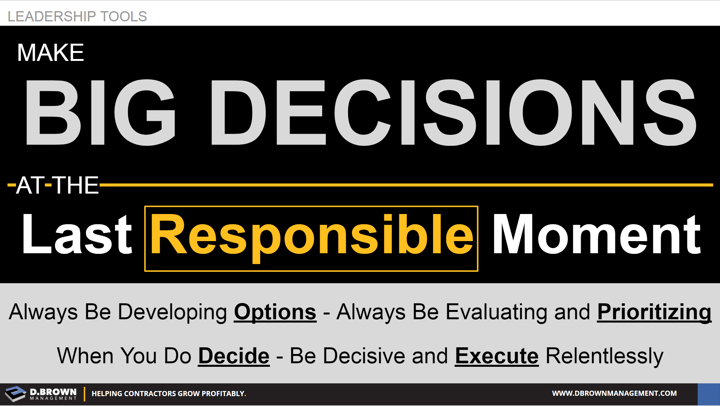If the decision is obvious with plenty of history showing it’s the right decision for you then you should do one of three things in the following order:
- Identify if there are others on your team that could easily make this decision. If yes then have them make it to develop the team.
- Identify if there are others on your team that will struggle with this decision could with help. If yes then coach them through the process and have them make the decision to develop the team.
- If 1 & 2 don’t apply then make it and move on.
For other more complicated and highly leveraged decisions with no clear right or wrong:
- Set a decision timeline and communicate it to those involved so they don’t think it is procrastination for the sake of procrastination. Know the last possible moment you can make the decision where the advantage of waiting reaches a point of diminishing returns.
- Identify sources of additional information including advisory services to help provide you more situational awareness
- Don’t over-analyze which will lead to more confidence than competency in your decision.
- When you do decide be decisive and execute with discipline.
- Don’t start “Resulting” regardless of the outcome.

